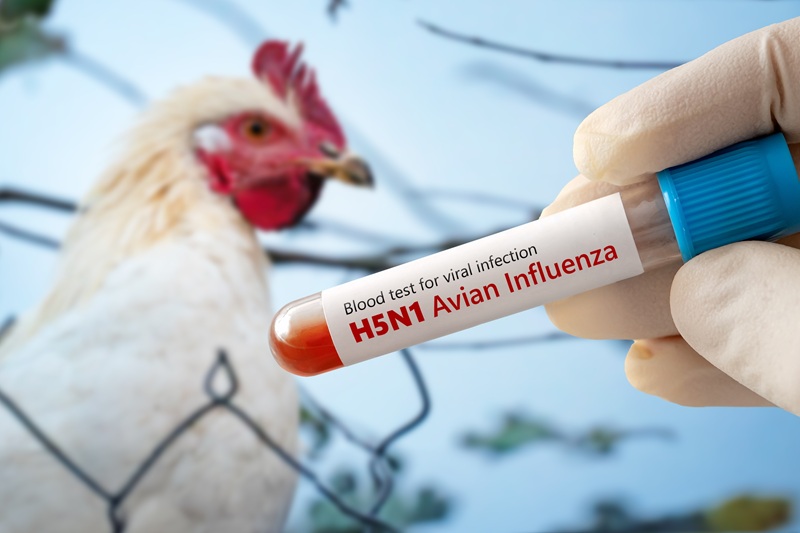
Ministry of Agriculture confirms avian flu ca...
read more

Recent higher court decisions have established that the one-year statute of limitations for subrogated cargo claims starts counting from the payment of compensation rather than from completion of discharge
Until 2002, the statute of limitations for contractual cargo claims was unquestionably one year from the completion of discharge, as established by the Commercial Code of 1850 and later reinforced by Decree-Law 116 of 1967. The latter is a specific federal law regulating liabilities for loading and discharging goods in Brazilian waterways. The right to claim could be consecutively extended in court for equal periods, and the limitation period was not a matter of dispute in the courts.
However, a controversy emerged after Brazil introduced its new Civil Code in 2003, which partly repealed the ancient Commercial Code, including its limitation provisions, and introduced a three-year limitation period for damages in general[1]. Even though the specific regulation that sets a one-year time limit for maritime cargo claims remains in force, some court rulings acknowledged arguments from subrogated cargo underwriters asserting that the three-year limitation period of the new civil statute applied to contracts of cargo carriage by sea, despite being at odds with modern transport legislation, such as the 1988 Law of Multimodal Cargo Transport and the 2007 Law of Road Cargo Transport, which provide for a one-year time limit.
Additionally, some court decisions ruled that the transport of goods is a consumer relation subject to the Consumer Protection Code of 1990, which not only brings strict liability and reversal of the burden of proof but also imposes a five-year time bar.
After years of legal debate, state appellate courts and the Superior Court of Justice (STJ), Brazil’s highest court for non-constitutional matters, have eventually settled jurisprudence by ruling that cargo claims under a contract of transport are subject to a one-year limitation period, as established by Law-Decree 116/1967. The ruling followed the doctrine of speciality (“Lex specialis derrogat legi generali”), whereby a general law passed later does not tacitly revoke or override a specific law enacted earlier as long as it remains consistent with the principles outlined in the newly enacted general statute.
The jurisprudence eventually settled on the principle that the Consumer Protection Code does not apply to commercial transactions between companies, such as when a subrogated insurer files a recovery claim against a sea carrier under a bill of lading.
While the courts have resolved the debate on the time bar for contractual cargo claims, setting it at one year, a new discussion has arisen to reinstate legal uncertainty. Subrogated cargo insurers have argued before the judiciary that their right to pursue recoveries begins once they have paid full indemnity to the insured; therefore, the yearly limitation period should start from that moment.
| Term | Situation | Initial term |
|---|---|---|
| 1 (one) year | Cargo claim under a contract of carriage: | Completion of discharge (for direct claims) Subrogation (for subrogated claims) |
| 3 (three) years | Cargo claim in tort (unlawful act): | Completion of discharge |
| 5 (five) years | Cargo claim under a consumer relation: | Consumer knowledge of the damage or defect |
On the other hand, lawyers representing sea carriers’ interests defend that the specific law (Law-Decree 116/1967) unequivocally determines when the time bar should commence[2]. They defend that, as a matter of public order and legal certainty, time bar counting cannot be open to broader interpretations or analogies. Furthermore, when the insurer is subrogated, it steps in the insured’s shoes, assuming not only the original credit but also the same rights and limitations that the insured had against the debtor of the obligation.
Despite some court decisions siding with the precept of Law-Decree 116/1967, in the sense that the annual limitation period begins upon completion of discharge, appellate courts have generally been entertaining subrogated cargo insurers’ claims. They do so in line with the current STJ thesis that “the initial term of the prescriptive period for the subrogated insurer to file a recovery action is the date of full payment of the compensation to the insured, in compliance with the ‘actio nata’ principle”[3], that is, when the insurer’s right of action arises.
Under the Civil Code rules, subrogation rights under an insurance contract are automatically triggered when the insurer compensates the insured party within the policy’s terms and limits, thereby taking over the rights – and the obligations – of the insured vis-à-vis third parties.
Proof of payment and claim release, equivalent to the subrogation form in other jurisdictions, is essential evidence alongside the insurance policy to entitle underwriters to pursue third-party recoveries, restricted to the amount paid to the insured.
In the context of maritime cargo claims, Súmula (abridgement) 151, issued by the Supreme Federal Court (STF) in 1963 and still in force, consolidates the rationale of previous judgments from higher courts, states in free translation that “the subrogated insurer’s action to seek compensation for shortage or damage to cargo transported by ship expires in one year”. However, it does not specify when the one-year period starts.
The limitation period can only be extended once for the same duration as the original time bar[4]. For instance, if a claim is subject to a one-year limitation period, the right to claim will be renewed for an additional year. The claim must be amicably settled or brought to court within this extended period. If neither of these actions is taken, the right to file the claim will expire, regardless of its merits.
Time limits set by law cannot be altered or extended at the parties’ discretion, as it is a matter of public policy that involves constraining rights. Unlike some other jurisdictions, contractual (or administrative) time extensions by agreement between the parties are not enforceable in Brazilian courts.
Judicial time extensions are obtained through a straightforward electronic court application called “Protesto Interruptivo de Prescrição” – PIP (motion for interruption of the prescription). The PIP is a precautionary judicial notification initiated by any interested party, typically the shipper, consignee or underwriter, in the case of cargo claims. The party against whom the time limit is extended is not required to respond or consent to the granting of time extension, as it is a voluntary jurisdictional proceeding[5].
Once the judge grants the time extension, a court notice is served on the party, who can challenge its validity when and if the substantive claim is brought to court within the extended limitation period. Notifications about PIPs on foreign carriers are usually served through the local shipping agents, though they may be served abroad through letters rogatory.
The commencement of legal proceedings, arbitration or mediation interrupts the running of the limitation period. However, simply filing an out-of-court claim does not automatically suspend or extend the time bar. The debtor may explicitly or tacitly waive the limitation period after its consummation without prejudice to the rights of third parties’ time-bar defence.
Uncertainty over the starting date of the time bar for subrogated cargo claims may pose practical challenges for carriers and their P&I insurers in claim management and allocation of financial reserves.
Consolidating the jurisprudence for a one-year limitation period for claims for shortage or damage to maritime cargo was a positive step towards legal certainty. However, the broader interpretation of the Brazilian higher courts on the onset of the time bar means that, in practice, it can take up to three years or more before the carrier is notified about a subrogated cargo claim, taking into account the time required to process compensations and serve judicial time extensions.
Therefore, carriers should consider this factor before discarding contemporaneous evidence that may assist in defending a cargo claim under Brazilian jurisdiction.
Please read our disclaimer.
[1] Art. 206, § 3, V, Brazilian Civil Code (Law 10,406/2002)
[2] “Article. 8 Actions for loss of cargo, as well as actions for lack of contents, reduction, losses and damage to cargo, shall expire after one year, counting from the date of completion of unloading from the transport vessel” (free translation of article 7 of Law-Decree 116/1967, as regulated by Decree 64,387/1969)
[3] “Jurisprudência em Teses” (Jurisprudence in Theses), Issue 232, March 2024, by the Secretariat of Jurisprudence of the Superior Court of Justice (STJ). This collation of STJ understanding was extracted from judgments published up to that moment but does not constitute an official repository of the STJ’s case law and is not binding
[4] Articles 202 to 204 of the Civil Code; Articles 240 and followers of the Civil Procedure Code (Law 13,105/2015)
[5] Articles 726 to 729 of the Civil Procedure Code
Related topics:
Rua Barão de Cotegipe, 443 - Sala 610 - 96200-290 - Rio Grande/RS - Brazil
Telephone +55 53 3233 1500
proinde.riogrande@proinde.com.br
Rua Itororó, 3 - 3rd floor
11010-071 - Santos, SP - Brazil
Telephone +55 13 4009 9550
proinde@proinde.com.br
Av. Rio Branco, 45 - sala 2402
20090-003 - Rio de Janeiro, RJ - Brazil
Telephone +55 21 2253 6145
proinde.rio@proinde.com.br
Rua Professor Elpidio Pimentel, 320 sala 401 - 29065-060 – Vitoria, ES – Brazil
Telephone: +55 27 3337 1178
proinde.vitoria@proinde.com.br
Rua Miguel Calmon, 19 - sala 702 - 40015-010 – Salvador, BA – Brazil
Telephone: +55 71 3242 3384
proinde.salvador@proinde.com.br
Av. Visconde de Jequitinhonha, 209 - sala 402 - 51021-190 - Recife, PE - Brazil
Telephone +55 81 3328 6414
proinde.recife@proinde.com.br
Rua Osvaldo Cruz, 01, Sala 1408
60125-150 – Fortaleza-CE – Brazil
Telephone +55 85 3099 4068
proinde.fortaleza@proinde.com.br
Tv. Joaquim Furtado, Quadra 314, Lote 01, Sala 206 - 68447-000 – Barcarena, PA – Brazil
Telephone +55 91 99393 4252
proinde.belem@proinde.com.br
Av. Dr. Theomario Pinto da Costa, 811 - sala 204 - 69050-055 - Manaus, AM - Brazil
Telephone +55 92 3307-0653
proinde.manaus@proinde.com.br
Rua dos Azulões, Sala 111 - Edifício Office Tower - 65075-060 - São Luis, MA - Brazil
Telephone +55 98 99101-2939
proinde.belem@proinde.com.br